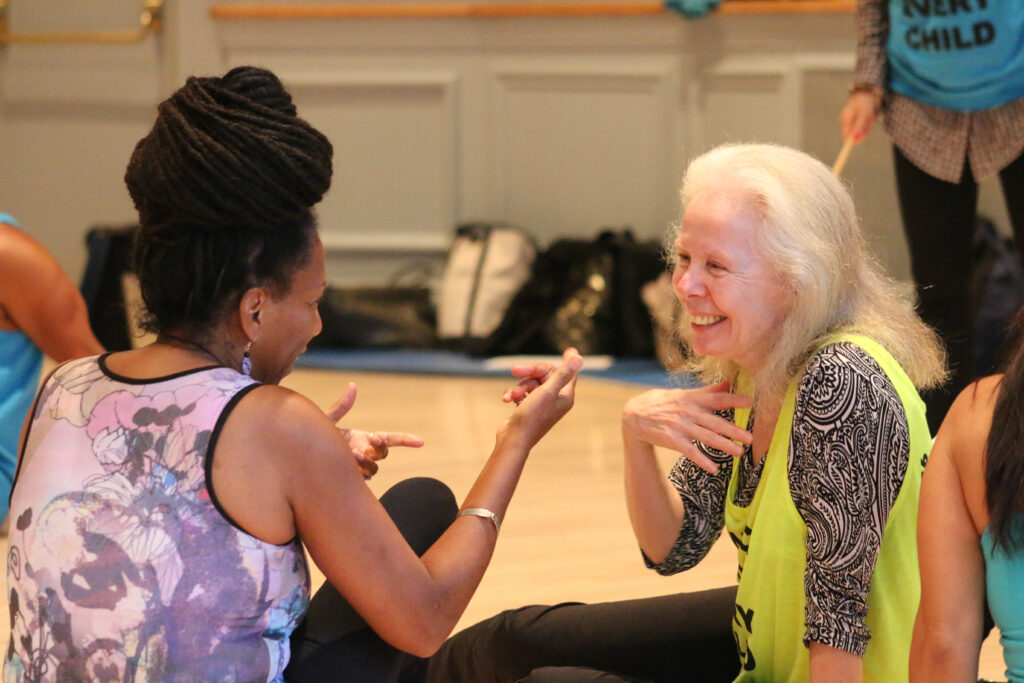Q&A with Dr. Diane Duggan, PhD, BC-DMT, on Dance for Students with Disabilities
We sat down with Dr. Diane Duggan to discuss working with students with disabilities, trauma-informed dance education, and our upcoming DEL Dance for Students with Disabilities course.
We’re honored to have Dr. Diane Duggan, PhD and Board-Certified dance movement therapist, as faculty for our upcoming course DEL Dance for Students with Disabilities. This is the first time we’re hosting this course in-person since 2020!
Dr. Duggan has been teaching dance since 1972 and has worked as a dance therapist since 1973. She has conducted a therapeutic dance program in a New York City Department of Education special education high school for adolescents with emotional and learning disabilities, taught in the graduate programs at New York University and Hunter College, and has been working with DEL since 2006.
DEL has offered Dance for Students with Disabilities regularly, and for good reason. Each year, course participants have the opportunities to learn new skills and strategies, gaining universal tools for all classrooms. This course is not only for teachers of students with disabilities, but ALL educators interested in learning more about inclusive teaching practices.

We asked Dr. Duggan a few questions related to her upcoming DEL course, and we’re so excited to share her insightful and inspiring responses with you.
Q: What does trauma-informed dance education look like in practice? How can this course support educators to implement trauma-informed dance education for all children?
A: Many students have experienced trauma in their lives. The pandemic itself has been a collective trauma for all students, severely disrupting their education and drastically curtailing their social lives. It is important to consider and address trauma for all students, and fortunately, a trauma-informed approach is especially compatible with best practices in dance education.
Trauma-informed dance education begins with the dance educator’s relationship with their students. The dance educator needs to be kind, fair, organized, predictable, and caring, and have high expectations for their students.
Consistency in the flow of class is also vital. Clear routines give students agency in carrying out class activities and alleviate uncertainty and anxiety. A predictable structure of the dance class, from warm-up to cool-down and everything in-between, is reassuring. Introducing new material through familiar routines is an effective trauma-informed strategy.
Dance educators, with our knowledge of somatics, are uniquely positioned to implement targeted trauma-informed strategies such as self-awareness and self-calming in our teaching.
In DEL Dance for Students with Disabilities, we will explore some of those strategies, adapted for children, so participants can purposefully include them in their classrooms.
Q: What are the strategies for working with students with disabilities that dance educators will walk away with after taking this course?
A: Dance educators will walk away with a strength-based perspective for thinking about and working with students with disabilities. They’ll have knowledge of best practices for organizing dance classrooms to optimize student engagement and success, and strategies for responding to challenging behaviors.
Dance educators will also learn about the strengths and needs of students with a variety of specific disabilities and how to create activities that meet these strengths and needs.
We’ll also introduce skills for facilitating activities and choreography that center student voices.
Above all, dance educators will walk away with an awareness of trauma-informed and inclusive teaching practices for dance classrooms.
Q: Why should dance educators take this course?
A: So many reasons! They’ll have opportunities to:
Learn a student strength-based perspective for understanding and working with students with a variety of disabilities
Acquire and practice skills using evidence-based strategies for organizing dance classes that engage students
Learn concepts, strategies, and best practices for effectively responding to challenging behaviors
Identify and adapt effective child-friendly and trauma-informed strategies
Learn from guest artists – including Kitty Lunn, Artistic Director of Infinity Dance Theater – who will share their unique approach to working with students with disabilities
Connect and share with other dance educators
DEL Dance for Students with Disabilities with Dr. Diane Duggan takes place in person at the 92nd Street Y in NYC: February 20-22.
